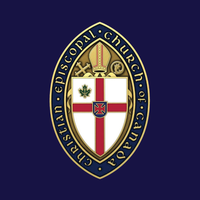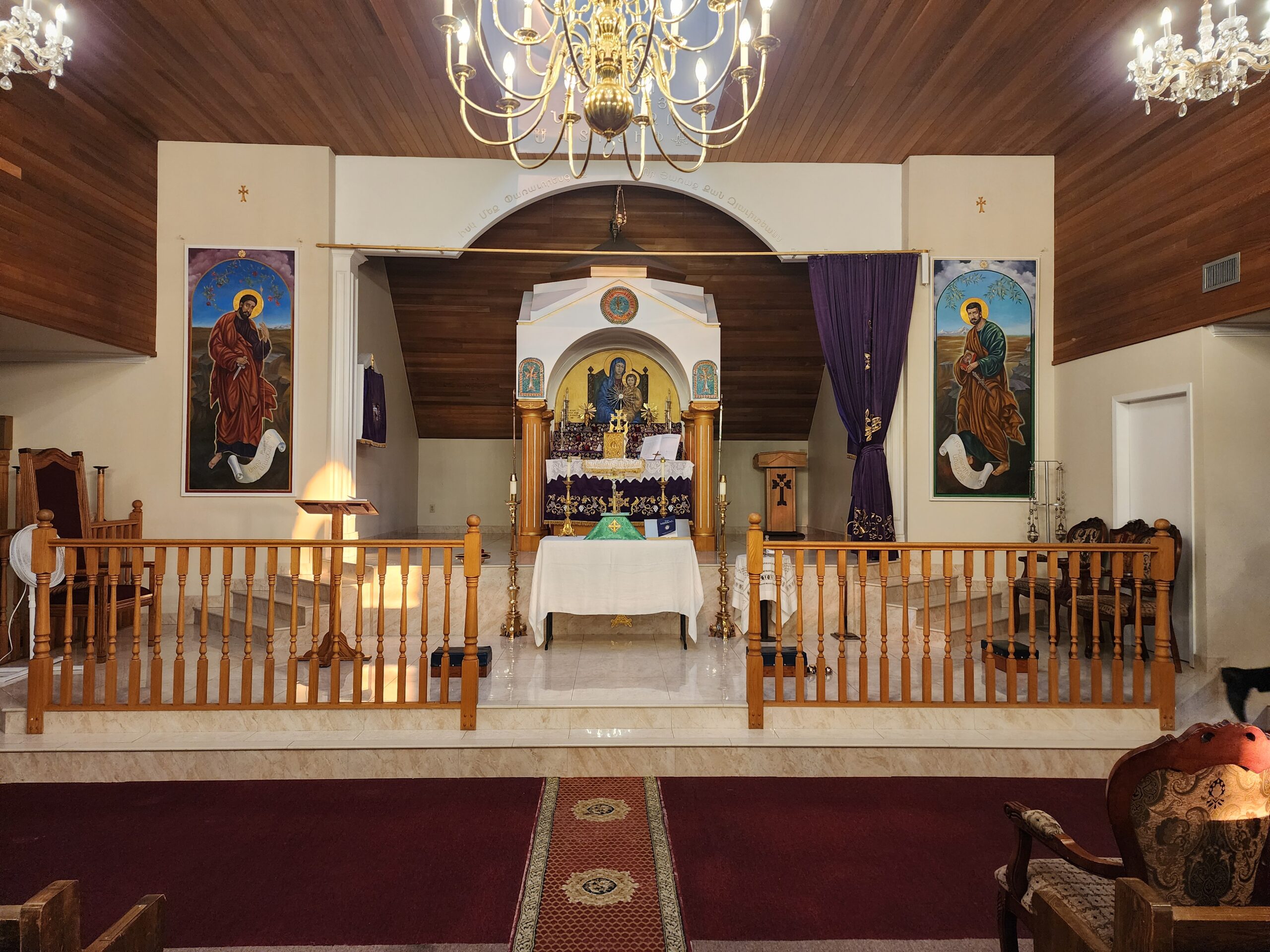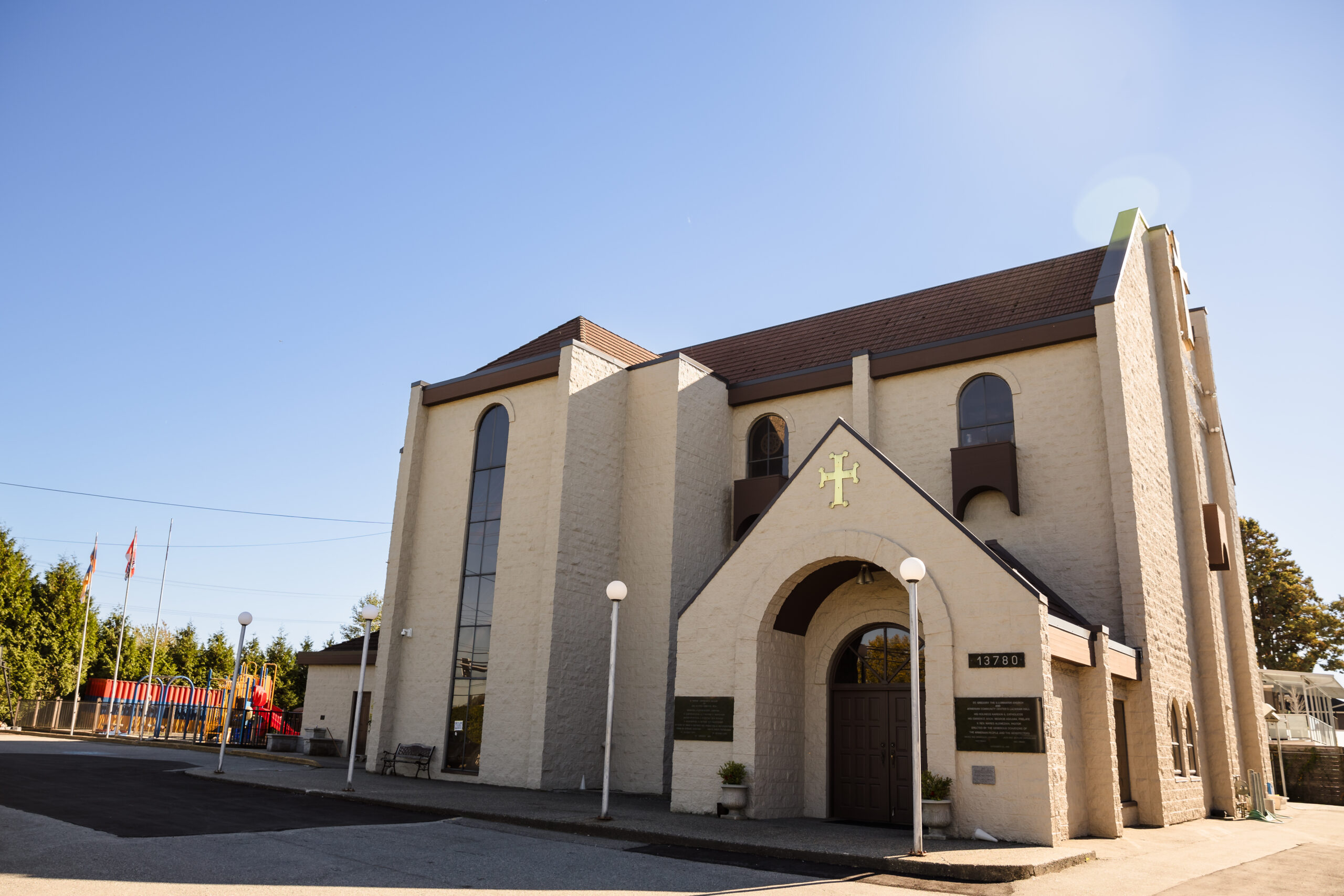
“For my House shall be called a House of Prayer for all peoples” – Isaiah 56:7
Everyone is welcome
THE Christian Episcopal Church of Canada is a national Catholic and Apostolic Church of the Anglican Tradition, and a living branch and integral portion of the One Holy Catholic and Apostolic Church of God.
The Faith we hold and believe is the Catholic Faith, and the Religion which we practice is the Catholic Religion; and that Faith and Religion is what binds all Catholic Christians together: the Faith which was once delivered unto the saints; and the Religion which has been practiced within the true Church everywhere, always, and by all. Whatever is that Faith believed and Religion practiced by the whole Church before the Great Schism is the Faith believed and the Religion practiced by the Christian Episcopal Church of Canada.
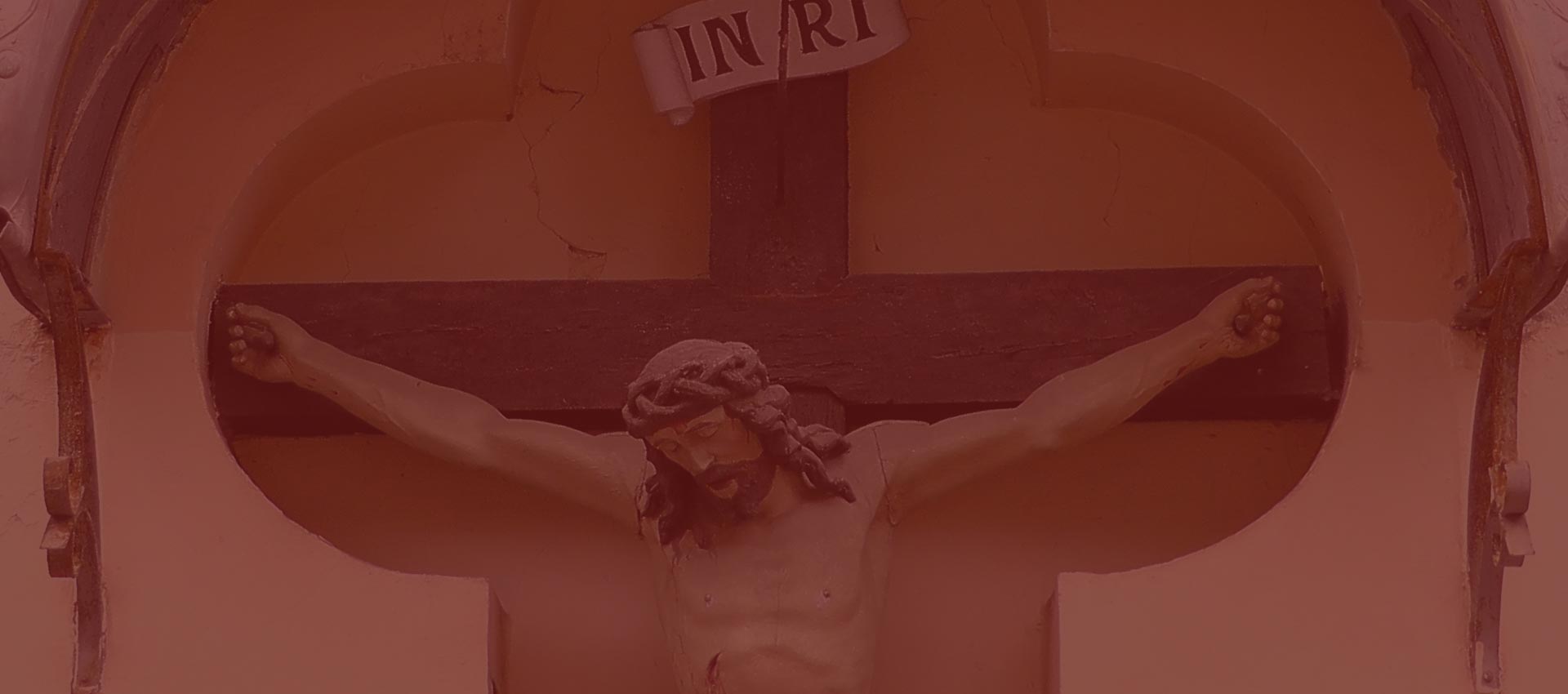
Who is the Church?
There is only One Church of God, which is the living Body of Jesus Christ, to which all baptised persons belong; for whoever is baptised with Water “In the Name of the Father, and of the Son, and of the Holy Ghost,” (Matthew 28:19) is incorporated into the living Body of Jesus Christ, and is made fully a member of that One Church.
Anyone who is baptised and professes right faith in Jesus Christ is a Christian, is saved from damnation and spiritual death, and is “a member of Christ, the child of God, and an inheritor of the kingdom of heaven.” And although there may be many bodies of Christians within that One Church, nevertheless all true Christians together form that One Body, which is the “blessed company of all faithful people.”
The essential marks of the true Church are that it is One, Holy, Catholic, and Apostolic. And the faith of that One Holy Catholic and Apostolic Church is “the faith once delivered unto the saints” as found in the Holy Scriptures of the Old and New Testaments, and as handed down within the Church as it was first preached and taught from the time of the Apostles.
Our Portion of the Church
The Christian Episcopal Church of Canada
The Christian Episcopal Church is a continuation of the Christian Church first planted in Roman Britain in Apostolic times; then brought to England by Saint Augustine and established by Pope Gregory the First; and later united together as one Church of England after the Synod of Whitby in 664. This English, or Anglican, Church and its sister Church in Scotland, continued to be the only Church in Britain until the Reformation.
The particular Tradition which we have received and maintain is the Anglican Tradition. That is to say, the liturgical Tradition within which we live and practice our Faith and Religion is that which we received from the Church of England and those Churches in communion with her since the Restoration of King Charles the Second. The Anglican Tradition, as maintained by the Christian Episcopal Church of Canada, is that which was set forth in the Book of Common Prayer of 1662 and in this present revision thereof. And the customs and traditions which prevail in the Christian Episcopal Church of Canada are those which have for centuries prevailed in the Church of England and the Scottish Episcopal Church, and those other Anglican Churches which, together with them, until very recently, constituted the Anglican Communion.

Our Apostolicity
The Christian Episcopal Church was established as a lawfully and canonically founded jurisdiction of the Anglican Communion by doctrinally orthodox and supportive Bishops under the oversight and with the guidance of the one-time Fourth Bishop of Dallas, First Bishop of Fort Worth, and Fifth Bishop of the Convocation of American Churches in Europe, the Most Reverend Archibald Donald Davies, who was elected First Bishop, Metropolitan and Primate of the Christian Episcopal Church of Canada, and First Presiding Bishop of the Christian Episcopal Church in the United States of America. Every Bishop, Priest, and Deacon of the Christian Episcopal Church of Canada, and of the Christian Episcopal Church in the United States of America, has been ordained or consecrated by Bishops who have succeeded from Archbishop Davies and those Bishops who first assisted him in establishing the Christian Episcopal Church. Therefore, every one of our Bishops, Priests, and Deacons derives his Orders from the Church of England, the Episcopal Church of Scotland, the Greek Orthodox Church, the Church of Utrecht, the Polish National Catholic Church, and the Roman Catholic Church.
Every Bishop, Priest, and Deacon in the Christian Episcopal Church has been either duly ordained or consecrated through the Laying on of Hands by the ordaining or consecrating Bishops according to rites and ceremonies that express the intention to make Deacons, to ordain Priests, or to consecrate Bishops as those three Orders of Sacred Ministry had ever been received, understood, preserved, and handed on within the One undivided Catholic and Apostolic Church from the time of the holy Apostles and as they are still so amongst us to this very day.
For those who wish to learn more about the Apostolic Succession of the Christian Episcopal Church, our Archbishop has published “The Apostolic Succession and the Catholic Episcopate in the Christian Episcopal Churches”.
Our Beliefs
The Christian Episcopal Church receives and fully believes the Holy Scriptures of the Old and New Testaments, and accepts and upholds the canonical Holy Scriptures as the revealed and inerrant written Word of God, and the supreme, final, and binding authority in all matters of faith and morals, and the absolute arbiter of the Christian religion.
The Christian Episcopal Church also believes, upholds, and teaches the orthodox Christian Faith as the same is expressed in the three Creeds of the undivided Catholic and Apostolic Church, that is to say, the Apostles’ Creed, the Nicene Creed, and the Athanasian Creed; and as the same orthodox Christian Faith was dogmatically defined by the Œcumenical Councils.
The Christian Episcopal Church also receives, believes, and ministers seven Sacraments, which are outward and visible signs of real inward and spiritual grace: Holy Baptism, Holy Communion, Confirmation, Penance, Orders, Matrimony, and Unction; but of these Sacraments, Holy Baptism and Holy Communion alone are commanded by Our Lord Jesus Christ in His holy Gospel to be received by all Christians as generally necessary for eternal salvation. The other five Sacraments are Sacraments of the Christian Life to be received by each baptised believer according to his or her own personal calling in Christ.
The Christian Episcopal Church also receives, believes, and upholds the true orthodox doctrine of the undivided Catholic and Apostolic Church, that the Holy Eucharist – which is the Divine Liturgy of the Lord’s Supper, or Holy Communion – is none other than the showing forth and offering to God of the saving Death and Sacrifice of Our Lord Jesus Christ made once and for all for the sins of the whole world; and that the whole, complete, and perfect Person of Our Lord and Saviour Jesus Christ in His Body and Blood, His Soul, and His Divinity is truly and really present spiritually under the outward and visible signs of consecrated Bread and Wine, and is given, and taken and received by the faithful, in the Sacrament of Holy Communion.
The Christian Episcopal Church receives, upholds, and maintains the Threefold-Ministry of Bishop, Priest, and Deacon, as the same was instituted by Our Lord Jesus Christ Himself through his holy Apostles, corresponding to the Threefold-Ministry instituted under the Law of Moses consisting of the High Priest, the Priesthood of the sons of Aaron, and the general Ministry of the sons of Levi. The Christian Episcopal Church reserves solely to the Bishops the principal government and oversight of the Church, and to them alone is given the power and authority to consecrate Bishops, ordain Priests, make Deacons, to send forth ministers, to confirm the faithful, and to preside in the Church of God as high priests of the New Testament.
The Christian Episcopal Church reserves solely to the Bishops and Priests alone the right, power, and authority to celebrate the Lord’s Supper, to absolve penitent sinners and to pronounce the absolution of sins, to anoint the sick and dying, and to bless and set apart good things of the earth to the service of Almighty God.
The Christian Episcopal Church allows to all her Bishops, Priests, and Deacons the authority to read and preach the Word of God, administer the Holy Communion to the faithful, to baptise, to marry, and to bury the dead, and to read and to preside at the Divine Service each according to his Order, and to participate in the Councils of the Church.
The Christian Episcopal Church asserts and teaches that Apostles alone have the authority to preside and rule over the universal Church, and that the Orders of Bishop, Priest, and Deacon derive from and were established by the holy Apostles, and are in every aspect wholly subordinate to them.
The Christian Episcopal Church asserts and teaches that with the taking away of the Apostles, the rule and governance of the One Church fell to the Bishops as a body, who were and are corporately responsible to preserve, uphold, maintain, and transmit unaltered and unimpaired the faith, order, and discipline of the Apostles as the same was first delivered by them to the universal Church.
The Christian Episcopal Church asserts and teaches that the See of Rome is the one and only Apostolic See, founded by and presided over by Saint Peter the Apostle, where he and Saint Paul, his fellow Apostle, lived, ministered and preached, and where both were martyred for the Faith; that all the Bishops of the See of Rome succeed from Saint Peter in the Episcopal Order; and that the Bishop of Rome thus presides amongst the Bishops of the Holy Catholic Church as Saint Peter himself had presided in charity amongst the Apostles as the first amongst equals and the chief pastor of the universal Church.
The Christian Episcopal Church also believes, upholds, and teaches the four dogmas concerning the Mother of Jesus, the Blessed Virgin Mary, that is to say, her purity, her perpetual virginity, her Divine motherhood, and her final assumption into heavenly glory.
The Christian Episcopal Church asserts and teaches the sanctity and the right to life of all human persons from conception until natural death; and the right to liberty, dignity, and security of the human person.
The Christian Episcopal Church asserts and teaches the sanctity and indissolubility of Christian Marriage; and the sanctity, privacy, and exclusivity of Christian family life.
The Christian Episcopal Church teaches and looks forward to the fulfillment of the blessed hope of the return of the Lord Jesus Christ, the resurrection of His elect, the establishing of His millennial kingdom, the general resurrection, and the last judgement at the end of time, when He shall judge the quick and the dead, and the world by fire; and thereafter create a new heaven and a new earth, wherein righteousness shall dwell according to the most sure promises of God made unto us in His holy Word.
Amen. Even so, Come, Lord Jesus!

Etiquette
When we come into the Church, we must always remember that we are entering the House of the Lord. Each one of us ought to be clean and modestly attired (always remembering that cleanliness and modesty are akin to godliness and righteousness), and mindful that we are in a holy place. It is our custom to be silent in the Church before and after the Liturgy both as a mark of reverence and respect for the Lord’s House and as a courtesy towards those who may be engaged in private prayer.
At Divine Liturgy
The Narthex is the proper place for meeting and greeting; but once one has passed through the doors, and entered into the Church, a proper, respectful, and reverential silence ought to be observed. And, when entering the Church, men are expected to uncover their heads; but women are expected to keep their heads covered, as commanded by Saint Paul the Apostle, in his First Epistle to the Corinthians, who taught us that for a man to pray or prophesy with his head covered is a shame unto him, but for a woman to pray or prophesy with her head uncovered is a shame unto her.
Upon entering or leaving the Church it is an ancient pious custom for baptised Christians to the dip the fingers of their right hand into the holy Water in the font at the door of the Church, and to make the Sign of the Cross with it. This is to remind us of our Baptism, as well as to purify ourselves before we enter into the House of the Lord and come before His Presence; and then to ask the Lord for His blessing and protection when we leave, and go back out again into the world.
Also, when entering or leaving, or when passing before the Altar, it is customary for men to bow and for women to curtsey; and when once one is in his or her pew, quietly to kneel down and to pray before the Divine Liturgy begins, and again after it ends. And the sign that the Liturgy is about to begin is when the Altar-Server lights the candles on the Lord’s Table, which then remain burning throughout the Liturgy to mark the time that is dedicated to the worship of Almighty God. The candles on the Altar are then extinguished once the Liturgy is ended.
Throughout the Liturgy, one should endeavour carefully to follow it along as it is set forth in the Missal; listen attentively; and try to pray all the prayers from one’s heart. One ought to pay close attention to the words in italics, because these are the directions for the proper conduct of the Liturgy; and they tell one when to stand, when to kneel, or when to sit. However, be that as it may, the general custom in Anglican Churches is that we stand for praise, we kneel for prayer, and we sit for instruction. If one cannot kneel, then one ought simply to remain seated and bow one’s head with reverence when engaged in prayer.
And as it is the usual Anglican custom for Christian men to bow and Christian women to curtsey when passing before or acknowledging the Altar, so it is also customary to make a genuflection, that is to say, to go down upon one’s right knee, before the Blessed Sacrament when It is present on the Altar, or before an Aumbry or Tabernacle wherein It is reserved. It is also customary for men to bow and women to curtsey at the mention of the Holy Name of JESUS, at any ascriptions of praise to the Most Holy Trinity, and whenever the Cross or the Priest passes by. It is also customary to make the Sign of the Cross at various times during the Liturgy (which times are marked out with a small cross), and especially before one receives either the consecrated Bread or Wine at the Holy Communion.
The Celebrant faces the Altar as he offers the Holy Sacrifice of the Mass, leading the congregation in prayer. This posture symbolises the Celebrant leading the faithful toward the Divine.
The Proper Receiving of Holy Communion
HOLY Communion is properly to be received by all the communicants kneeling (unless one is infirm, and thus prevented from so doing). The consecrated Bread is received either on the tongue, or else in the hand. Receiving on the tongue is done simply by tilting one’s head back slightly, extending the tongue out over the teeth, and allowing the Priest to place the Host on the front part of one’s tongue. Receiving in the hand is done by extending the hands forward, placing the right hand over the left hand, and then conveying the Host to one’s mouth. Likewise, the consecrated Wine is received by one gently holding the Chalice, with the right hand touching the bowl of the cup and the left hand touching its base, and then guiding it to one’s mouth, taking only a small sip of the Precious Blood. The Priest or assistant Minister will be sure to keep hold of the Chalice at all times, in order to prevent any accidents from happening.
ALL BAPTISED AND CONFIRMED CHRISTIANS WHO ARE IN A STATE OF GRACE, BELIEVE THE TEACHING OF THE UNDIVIDED CHURCH IN REGARD TO THE HOLY EUCHARIST, AND ARE PROPERLY DISPOSED TO COMMUNICATE, ARE WELCOME TO RECEIVE THE HOLY COMMUNION.
When one has received the Holy Communion, one ought to remain kneeling until the person next to him has communicated; and then one ought to rise carefully from the Communion rail and, with lowered head, quietly and reverently return to his own pew, and there to kneel down, and give humble thanks to Almighty God for the wonderful Gift of His beloved Son in the Sacrament of the Lord’s Supper.
After Mass
As the early Church valued communal gatherings – the ‘Agape Feast’ – as an extension of the sacred liturgy, we likewise gather in the hall for fellowship after Mass.
Sacraments
A Sacrament is an outward and visible sign, given unto us and ordained by our Lord Jesus Christ Himself, as a means whereby we receive an inward or spiritual grace. Christ our Lord ordained two Sacraments only as being generally necessary to Salvation; that is to say, Baptism and the Supper of the Lord.
There are five other sacred mysteries, also called Sacraments, which, like Baptism and the Supper of the Lord, are outward and visible signs of inward and spiritual grace truly imparted to those who rightly and worthily receive them; howbeit, not every Christian is bound to receive them all, as they are not generally necessary for salvation to be received of all Christians; but rather are Sacraments of the Christian life, to be received by each Christian believer according to his own calling in Christ Jesus.
Baptism

The outward and visible sign of Baptism is Water, in which the person who is to be baptized is dipped, or else upon whom the Water may be poured, together with the form of words, I baptize thee in the Name of the Father, and of the Son, and of the Holy Ghost. The inward and spiritual grace of Baptism is a death unto sin, and a new birth unto righteousness, through the mystical washing away of sins by the Blood of our Lord Jesus Christ, signified unto us by the Water of Baptism: for being by nature born in sin, and so the children of wrath, we cannot inherit the kingdom of God; yet by the grace imparted unto us in Baptism, we are verily and indeed washed and cleansed by the Blood of Christ, and are made very members of His Body, and the children of grace. The requirement for one to be baptized is repentance, whereby we who are baptized forsake sin; and Faith, whereby we steadfastly believe the promises of God made unto us in that Sacrament.
Infants and young Children are baptized because Baptism is the outward and visible sign, not only of our regeneration and new life in Christ, but also of our admission thereby into the new Covenant made for us by Him, and sealed with His own Blood; into which holy Covenant the children of Christian parents are admitted, in like manner as the sons of Israel were admitted into the old Covenant, as the seed of Abraham, by their fathers and mothers under the Law of Moses; and so they promise, by their Godfathers and Godmothers, who are their Sureties; which promise, when they are come to age, they themselves are bound to perform.
The Lord’s Supper
The Sacrament of the Lord’s Supper (a.k.a. Holy Communion, Eucharist, Mass, Divine Liturgy) was ordained for the continual remembrance of the sacrifice of the death of our Lord and Saviour Jesus Christ, to be shewn by His Church until He shall come again; and to partake of the benefits which we receive thereby. The outward part, or the visible sign, of the Lord’s Supper, is Bread and Wine, which the Lord instituted and commanded to be received. The true substance, or inward heavenly and spiritual reality, of this holy Sacrament is the most precious Body and Blood of our Lord and Saviour Jesus Christ, which are truly and really present under the outward and visible signs of the consecrated Bread and Wine; and which are verily and indeed taken and received by the faithful in the Sacrament of the Lord’s Supper, or Holy Communion. The benefits of Holy Communion are the strengthening and refreshing of our bodies and souls, and their preservation unto everlasting life, by the Body and Blood, altogether with the Soul and Divinity, of our Lord Jesus Christ, which we receive in Holy Communion; and is the principal means whereby, we are assured, that He dwells in us, and we in Him.
It is required of every person that shall partake of the Lord’s Supper, that he be in a state of grace; that is to say, every communicant must first examine himself, whether he has repented himself truly of his former sins, steadfastly purposing to lead a new life; and if he have committed any deadly sins, humbly and sincerely to confess them; and having received the grace of absolution, to do proper penance therefor; he must also have faith in God’s infinite mercy and forgiveness through His only Son Jesus Christ, with a thankful remembrance of His death upon the Cross for our salvation; and be in charity with all men.
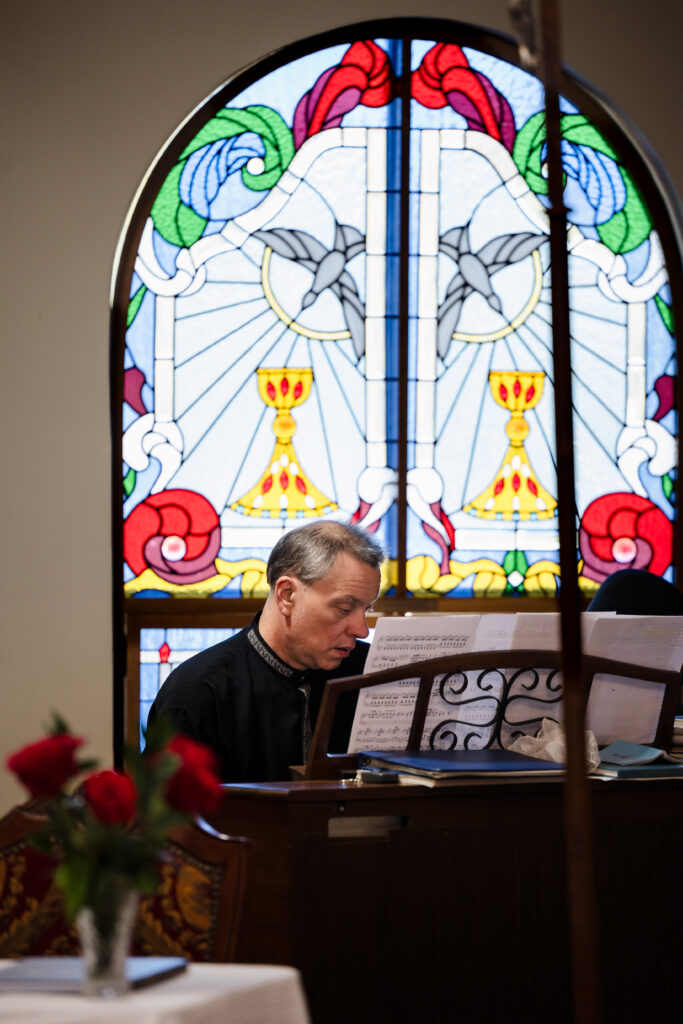
Penance
Penance is the means whereby God pardons all them that confess, and truly repent them of their sins, restoring them to their baptismal innocence and reconciling them to Himself and His Church, through the grace of Absolution, and the performance of such penances as shall be imposed upon them to make satisfaction for the guilt incurred by sin.
Confirmation
Confirmation is the means whereby God confirms and strengthens the faith of baptised Christians, by the inward anointing and sealing of their souls by the Holy Ghost, imparted to them through the laying on of hands, after the example of the holy Apostles.
Matrimony
Matrimony is the means whereby God unites and binds together a man and a woman as one flesh, by a solemn covenant made between them, signified by the pledging of vows, the giving and receiving of rings, and the joining of hands; within which union alone God has ordained the begetting and nurturing of children.
Unction
Unction is the means whereby God heals the sick, through prayer made over them, and by anointing them with Oil in the Name of the Lord, that He may save them, and raise them up; and, if they have committed any sins, they shall be forgiven them.
Orders
Orders is the means whereby God sets apart men for the threefold sacred Ministry of His Church, through the Laying on of Hands with Prayer, thereby consecrating some Bishops, ordaining some Priests, and making some Deacons; each Minister in the particular Order of his calling, according to the gracious will and purpose of Almighty God.

Our Parishes
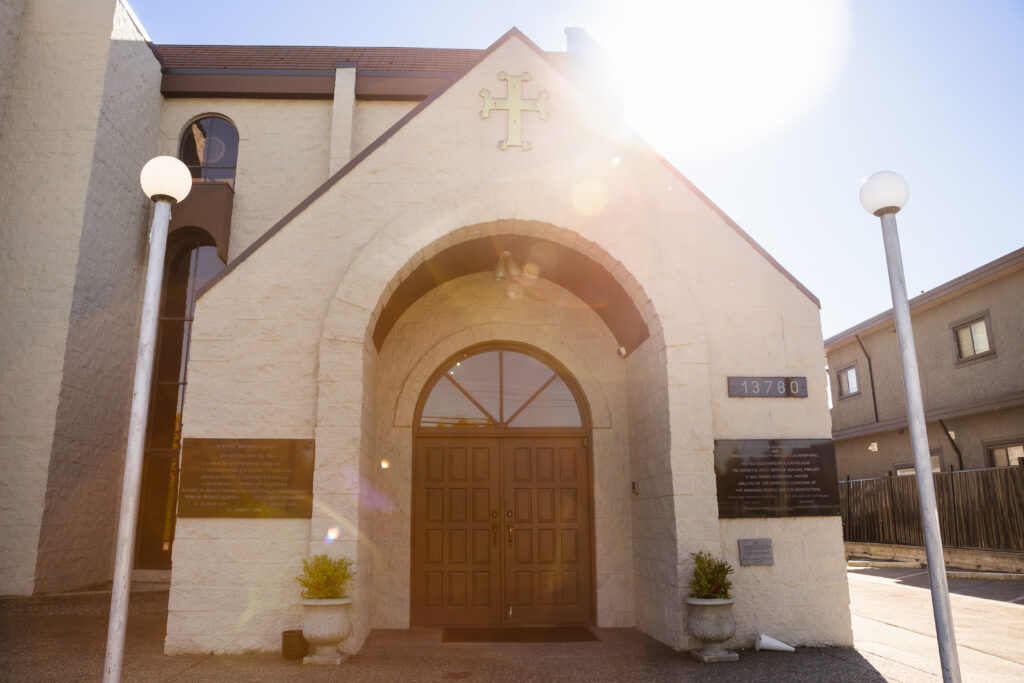
Saint Saviour’s Cathedral Parish
Rector:
Archbishop Robert David Redmile
Address:
13780 Westminster Hwy, Richmond, BC V6V 1A2
Services:
St Saviour’s Parish is blessed to hold its services at the Armenian Apostolic Church of St Gregory the Illuminator, with Sunday Mass beginning at ~2:45 PM on the upper floor.
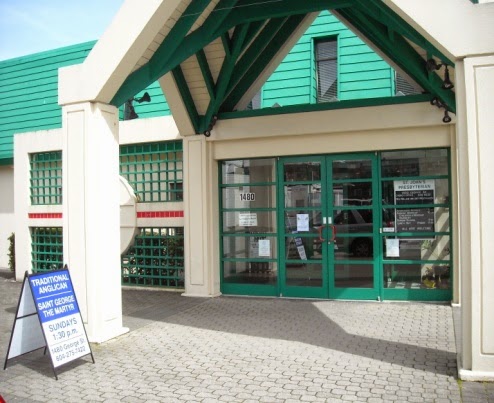
Saint George the Martyr Parish
Rector:
Father James Krawchuk
Address:
1480 George Street, White Rock, B.C. V4B 4A3
Services:
St George’s Parish is graciously hosted by St John’s Presbyterian Church, and Sunday Mass begins at 1:30pm.
Email:
SaintGeorgeWhiterock@gmail.com
Ministers
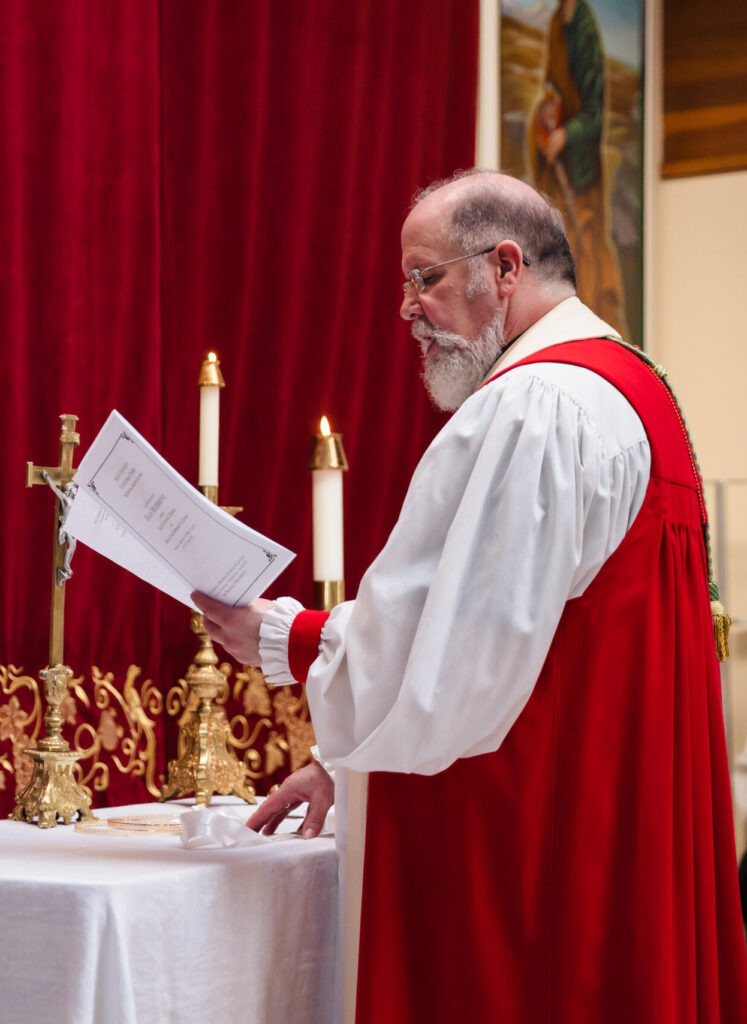
The Most Reverend Robert D. Redmile
The Most Reverend Robert David Redmile, is the Bishop of Richmond and the Archbishop and Primus of the Christian Episcopal Church of Canada. Born and raised in Vancouver, British Columbia, he graduated from Sir Winston Churchill Secondary School, and attended Langara College, where he received a Diploma in Arts and Sciences majoring in Classical Studies. After graduation, he read Mediaeval and Renaissance History and English Literature at the University of British Columbia, graduating with a Bachelor’s Degree in Arts. Having taken time off to travel abroad, upon his return to Canada he articled in preparation for obtaining a designation as a chartered accountant. During this time, he felt a call to return to an academic life, and obtained a Bachelor’s Degree in Education following some time reading British Imperial History. Having turned down an invitation to accept a fellowship at the University of Edinburgh at the Centre for Canadian Studies, he taught Secondary School in the public school system until he made the decision to teach in the private Christian school system under the auspices of the Society of Christian Schools of British Columbia. During this time, he was called to the Sacred Ministry, and studied sacred theology, studying for awhile under Dr James I. Packer at Regent College, in preparation for ordination while continuing to teach. In early 1993, he was made Deacon by Bishop A. Patrick Stanton Murphy, and in December of that year he was ordained Priest by Bishop A. Donald Davies, First Bishop of the new Diocese of Richmond. Having founded the first two congregations of the new Diocese, Father Redmile was appointed Archdeacon and Vicar-General for Canada representing the Archbishop Davies, now the Primate of the Christian Episcopal Churches of North America. In 2002, Father Redmile was elected Bishop Co-adjutor for the Diocese of Richmond, and was consecrated Bishop by Archbishop Davies, assisted by Bishop Jon Mark Lindenauer and Bishop Theodore Casimes. In 2004, Bishop Redmile was enthroned as the Second Bishop of Richmond by Archbishop Davies himself, and became the first Canadian-born Bishop of the Christian Episcopal Church in North America. In 2021, Bishop Redmile was appointed Archbishop and Primus of Canada by the retiring Primate of the North American Churches, Archbishop Casimes, and will eventually succeed to the Primacy of the Canadian Church at such time as the Lord shall determine that to be. Archbishop Redmile is a Métis Canadian, and a descendant of the first nations and first pioneers who founded Canada. He is also an armiger with arms granted by Her Majesty the Queen, and is an active member of the Monarchist League of Canada.
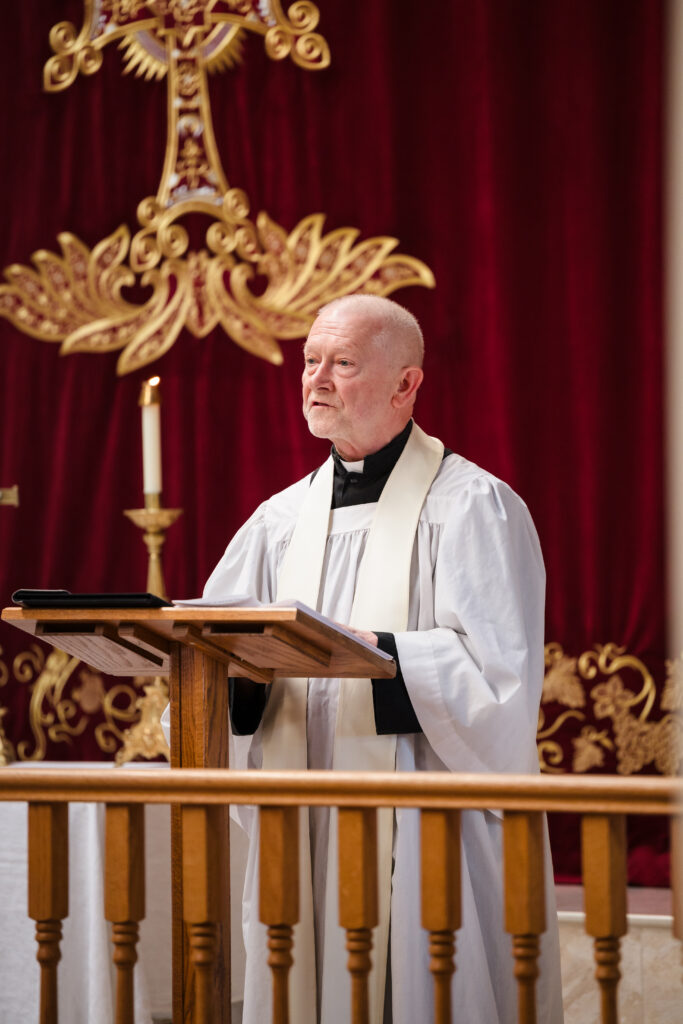
The Venerable James N. Krawchuk
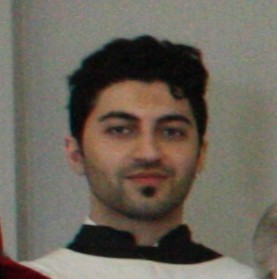
The Reverend Arya Hakkak
Arya was baptised and confirmed as an adult in 2013. He earned a Bachelor of Arts in History, with a minor in Philosophy, from the University of British Columbia in the spring of 2018. In June 2019, he was ordained a Deacon by Bishop Robert D. Redmile and is currently discerning the Priesthood.

Who we serve
The Christian Episcopal Church of Canada welcomes all who seek Christ and His Church. While everyone is welcome, we find that our parish particularly resonates with:
- Traditional Anglicans who feel disillusioned with the direction of mainstream Anglicanism and desire an orthodox expression of historic worship and doctrine.
- Lapsed Christians who have struggled to connect with worship in either modernised English or foreign languages and long for a reverent, accessible liturgy.
- New Converts who seek traditional Christian worship and sacramental life without being compelled to view other portions of the Church as wholly separate or invalid—those who desire a faith that acknowledges the unity of Christ’s Church across traditions.
If you are searching for a place where tradition, reverence, and sacramental life are faithfully upheld, we invite you to join us.



